Canberra needs to aggressively reach out to Pacific nations to counter Chinese influence says former US navy chief
Canberra needs to aggressively reach out to Pacific nations to counter Chinese influence in the region, says a former chief of the US navy.
NSW
Don't miss out on the headlines from NSW. Followed categories will be added to My News.
The former intelligence chief to the US Navy’s Pacific Fleet has called on the Australian government to “aggressively” reach out to our Pacific Island neighbours with aid packages to counter Chinese influence in the region.
Captain Jim Fanell said failure to do so means it is “just a matter of time before the nations of the South Pacific begin to see PLA navy warships and air force military aircraft plying their waters and flying across their airways”.
His warning comes as analysts indicate Kiribati’s Christmas Island Pacific atoll 2000km south of Hawaii could be the next target for China to try and build a military base.
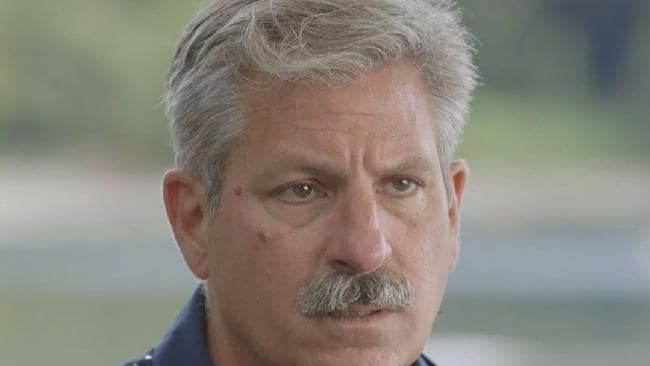
MORE NEWS
Development debate: Pyrmont like a chocolate pretzel
$10k boost for NSW’s COVID-hit businesses
Miley Cyrus and her mullet take a wrecking ball to hair fashion
Captain Fanell said the re-election of Kiribati president Taneti Maamau just months after he ditched support of Taiwan in favour of Beijing “is an indicator of the growing effectiveness of the PRC’s strategic influencing campaign across the South Pacific”.
“It seems likely that Beijing will provide Kiribati huge amounts of money that are contingent upon allowing the People‘s Republic of China to have greater access and exclusionary rights in this tiny atoll nation,” he said.
China is now the third largest supplier of cash in the region — behind Australia and New Zealand.
Australian money comes in the form of aid whereas China’s largely comes in the form of loans for big infrastructure projects that are then built by Chinese companies.
Chinese loans have been labelled debt-trap diplomacy and for some nations — such as Tonga — more than half the country’s debt is owed to China.
It proved a trap for Sri Lanka two years ago when it was forced to hand China control of a Chinese built port on a 99-year lease to pay off a $14 billion debt.
“Over the past three years, scores of PRC government officials have been travelling Oceania to offer infrastructure deals and it now appears their work is beginning to pay off,” Captain Fanell said.
In 2017 China released a paper called Vision for Maritime Cooperation under the Belt and Road Initiative (BRI) which outlined its plan to expand influence into the Pacific through big civilian infrastructure programs.
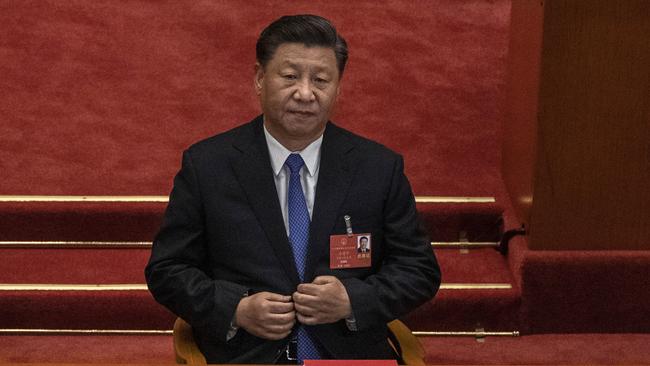
Captain Fanell said the building of civilian ports, such as an 800m quay in Vanuatu, could be paving the way for the Chinese navy in the future.
“Many questioned the necessity for such a large wharf given Vanuatu‘s economic circumstances, but from a military perspective it would appear that this dock would allow PLA navy warships a perfect harbour in the future,” he said.
Jonathan Pryke, the Lowy Institute’s Pacific Islands expert, said the port on Kiribati’s Christmas Island atoll “would be of clear strategic benefit to China”.
Kiribati has a population of just 110,000 spread over 33 islands as part of an exclusive economic zone larger than India and a host of problems including non-communicative diseases and rising sea levels that would benefit from Chinese aid.
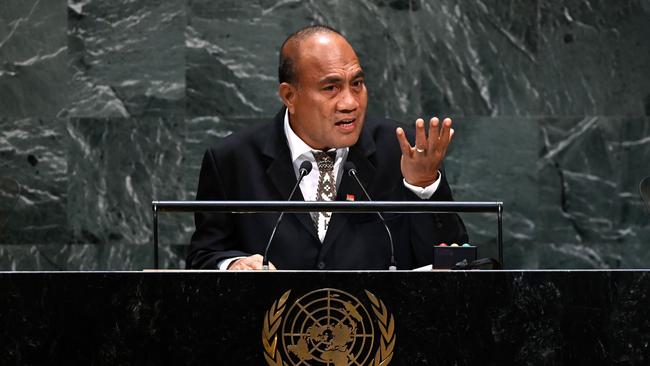
“Australia and its allies will need to be vigilant that this assistance doesn’t come with some kind of concession to give China a strategic foothold,” Mr Pryke said.
China has already tried to establish bases in the Pacific. Just days after the Solomon Islands ditched support for Taiwan in favour of Beijing last year, a Chinese company attempted to lease all of Tulagi Island with its perfect deepwater harbour. That was rejected as unlawful by the courts.
Captain Fannell warned a string of Chinese bases across the Pacific would profoundly affect Australia’s strategic and defence thinking.
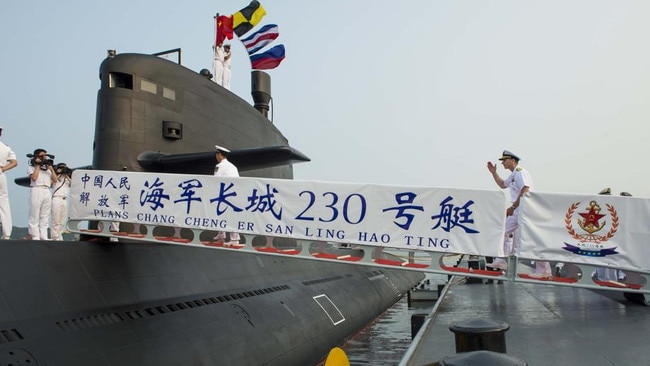
“The danger for Australia is that Beijing will use their new BRI partnerships to further manipulate the international order in its favour and thus empower it to take punitive actions against Australia if it does not kowtow to the Chinese Communist Party’s demands,” he said.
“Australia has just witnessed this over the issue of Prime Minister Morrison’s legitimate inquiry into the origins of the coronavirus. The PRC not only refused to accept such a query, but went one step further and penalised Australia for even asking the question.”
Captain Fanell said Australia needed to “aggressively” reach out to Pacific nations to offer aid while at the same time talking to “Washington, Tokyo and Taipei to offer comprehensive solutions to these nations problems.”
The first step should be to help Kiribati, in the heart of the world’s largest tuna belt, to build a viable fishing industry before China stepped in to do that instead.
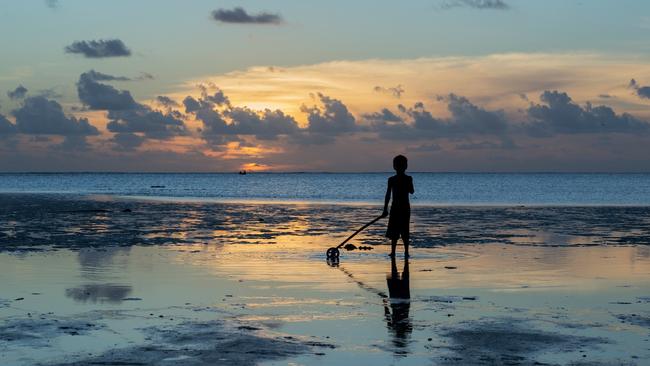
A Department of Foreign Affairs and Trade spokesman said Australia was pumping a record $1.4 billion a year into the Pacific as part of Pacific Step-up, which had “pivoted our development assistance to prioritise what Pacific nations need most in the context of COVID-19.
“We welcome commitments from others that support sustainable development and respond to the priorities of our region,” the spokesman said.
“The Australian Government looks forward to continuing to work closely with Kiribati President Taneti Maamau, following his re-election.”
The Chinese consulate did not respond to requests for comment.
Originally published as Canberra needs to aggressively reach out to Pacific nations to counter Chinese influence says former US navy chief

